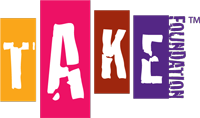IN THE NEWS
SOURCE: Associated Press
Published October 20, 2011
News Article
Obama Awards Presidential Citizens Medal to 13
Associated Press Recognizing the good deeds of 13 compassionate Americans, President Obama said Thursday that he hopes their work helping the poor, the illiterate, veterans, service members and others will “inspire us to put ourselves in another person’s shoes.”
For their service, totaling decades in some cases in communities stretching from Alaska to Florida, each of the 13 received the 2011 Presidential Citizens Medal from Obama during a ceremony in the White House East Room. The medal is the nation’s second-highest civilian honor.
One woman was honored posthumously for speaking out against domestic abuse in the IndianAmerican community. Another woman whose story of suffering as her hospitalized partner died alone encouraged Obama to grant full visitation rights to gay couples also was recognized. In the tragic loss of their children, other honorees saw opportunities to help victims of terrorism and mass violence and to teach women how to fight back when attacked.
Roger Kemp of Leawood, Kan., started a program called TAKE after his daughter, Ali, a 19-year-old college freshman, was killed in 2002. Kemp, who believes his daughter might still be alive if she knew how to defend herself, began The Ali Kemp Defense Education Foundation to train women to fight off attackers. More than 48,000 women have taken his classes, he said after the ceremony.
Kemp said he was overwhelmed by the presidential recognition. “It’s a very nice acknowledgement of what we’re doing but we’ll continue what we’re doing just like we always have,” he said in a telephone interview. “This isn’t the culmination of anything we’re doing.”
Obama said Kemp and the other medal recipients were “chosen not for the work that they do, but for the example that they set.” “We don’t always get to choose the challenges that we face,” Obama added. “But how we respond is entirely up to us.” Obama opened this year’s nominating process to the public, hoping to recognize ordinary citizens and local heroes. Nearly 6,000 submissions flooded into the White House, which needed nearly four months to whittle them down to the 13 individuals honored Thursday, he said.
The president alluded to the difficult economic times challenging the country and said it’s easy for people to say they have too many problems of their own to deal with before they can think about helping someone else in need. He said the medal recipients’ stories are an inspiration.
“I hope they inspire us to put ourselves in another person’s shoes,” the president said.
The other 12 medal recipients and brief biographies distributed by the White House:
Steve and Liz Alderman of Armonk, N.Y., for the foundation they opened after losing their son, Peter, on 9/11. The Peter C. Alderman Foundation works to heal the emotional wounds of victims of terrorism and mass violence at clinics in such countries as Cambodia, Uganda, Rwanda and Haiti.
Clarence Lee Alexander of Fort Yukon, Alaska, for his work to clean the Yukon River. His efforts have led to the closure of open-burning dumps and the removal or recycling of millions of pounds of waste. He is often called the “grandfather of tribal government” in Alaska for his role as chief of Fort Yukon.
Camilla Bloomquist of Penn Yan, N.Y., for creating and running programs for more than 30 years to help the poor and underserved in her community in New York’s Finger Lakes region. Her programs provide food, Christmas presents and free meals for children at school.
udith Broder of Studio City, Calif., for creating The Soldiers Project in 2004 to provide mental health services to service members, their families and returning veterans. Broder’s program tries to lessen the disruption caused by repeat deployments, ease the transition and reintegration after deployment, and reduce suffering related to post-traumatic stress syndrome, traumatic brain injuries, substance abuse, domestic violence and depression.
Vijaya Emani of Strongsville, Ohio, was recognized posthumously for overcoming domestic abuse and becoming a role model for other sufferers. Emani defied tradition in the Indian-American community by speaking publicly about the issue. She died in January 2009 after being hit by a truck.
John Keaveney of Los Angeles for creating New Directions, a home for homeless and disabled veterans who have addiction and mental health problems. A Vietnam combat veteran, Keaveney overcame personal struggles of his own to turn his life around in the 1980s.
Janice Langbehn of Lacey, Wash., for fighting for fair treatment for all. Langbehn’s partner was hospitalized after suffering a brain aneurysm while vacationing with her family in February 2007. Langbehn was not allowed to see her partner, who died alone. Langbehn sued in federal court and her story attracted Obama’s attention. He later granted full visitation rights for same-sex couples at hospitals receiving federal Medicare or Medicaid funds.
Ida Martin of Bluffton, S.C., for creating Self Help to help working families, the disabled and senior citizens during financial hard times. Last year, Martin’s program fed more than 11,000 people and helped clothe nearly 9,000. Her program also provides families with short-term, emergency financial aid they can use to pay housing, utility, medical and other costs.
Margaret Martin of Los Angeles for the Harmony Project, which she began in 2001 to provide free instruments and music lessons to children in some of the most underserved, gang-ridden areas of the city. She got the idea after watching gang members stop at a Hollywood market to listen to a child playing classical music on a violin.
Michelle McIntyre-Brewer of Jefferson, Md., a military spouse who created Soldier’s List in 2003 to support high-risk service members and their families. Her program has sent tens of thousands of care packages around the world, providing medical relief.
Roberto Perez of Miami, who started Alfalit. The organization has helped 7 million people learn to read in more than 22 countries on three continents.
